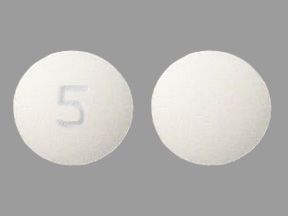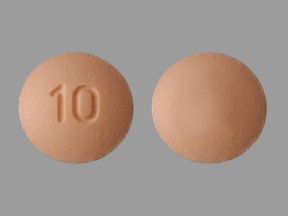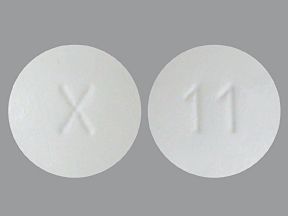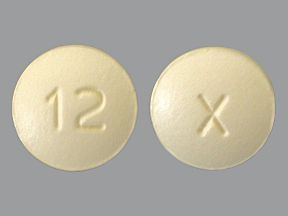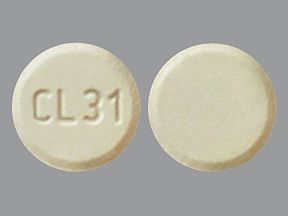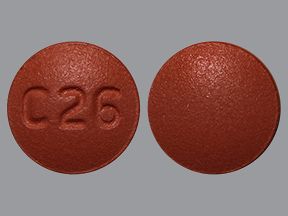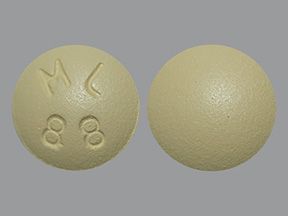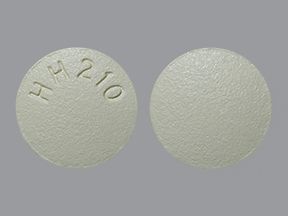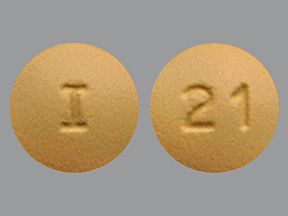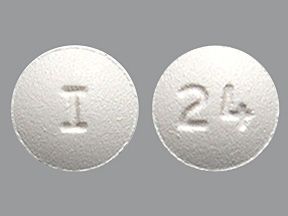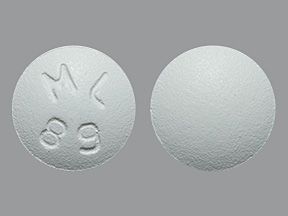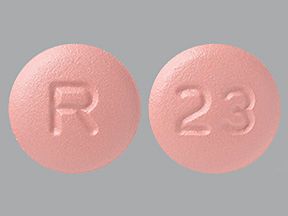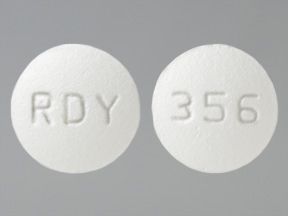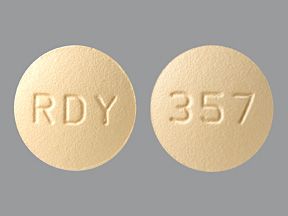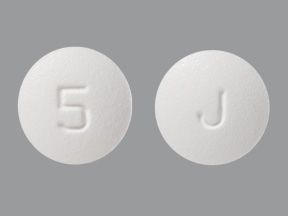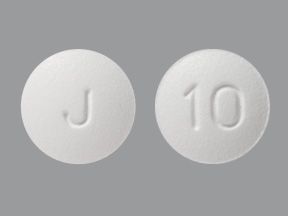- Donepezil oral tablet is available as a brand-name drug and a generic drug. Brand name: Aricept.
- Donepezil comes in two oral tablet forms: tablet and disintegrating tablet (ODT).
- Donepezil oral tablet is used to treat dementia due to mild, moderate, and severe Alzheimer’s disease. This drug isn’t a cure for Alzheimer’s disease, but it may help slow down how quickly symptoms progress.
Donepezil is a prescription drug. It comes in two oral tablet forms: oral tablet and oral disintegrating tablet (ODT).
Donepezil oral tablet is available as the brand-name drug Aricept. It’s also available as a generic drug. Generic drugs usually cost less than the brand-name version. In some cases, they may not be available in every strength or form as the brand-name drug.
This drug may be used as part of a combination therapy. That means you need to take it with other drugs.
Why it’s used
Donepezil is used to treat dementia due to mild, moderate, and severe Alzheimer’s disease. This drug isn’t a cure for Alzheimer’s disease, but it may help slow down how quickly your symptoms progress. Symptoms of Alzheimer’s disease will get worse over time, even if you take medications such as donepezil.
How it works
Donepezil belongs to a class of drugs called acetylcholinesterase inhibitors. A class of drugs is a group of medications that work in a similar way. These drugs are often used to treat similar conditions.
People with Alzheimer’s disease have low amounts of a chemical in the brain called acetylcholine. Low levels of this chemical can cause dementia, or problems with mental function or doing daily tasks. Donepezil works by preventing the breakdown of acetylcholine. This can help decrease the symptoms of dementia.
Donepezil oral tablet doesn’t cause drowsiness, but it can cause other side effects.
More common side effects
The more common side effects that can occur with donepezil include:
- nausea
- diarrhea
- not sleeping well
- vomiting
- muscle cramps
- tiredness
- not wanting to eat or having a poor appetite
- bruising
- weight loss
If these effects are mild, they may go away within a few days or a couple of weeks. If they’re more severe or don’t go away, talk with your doctor or pharmacist.
Serious side effects
Call your doctor right away if you have serious side effects. Call 911 if your symptoms feel life-threatening or if you think you’re having a medical emergency. Serious side effects and their symptoms can include the following:
- Slow heart rate and fainting
- Stomach ulcers and bleeding, symptoms can include:
- heartburn
- stomach pain that won’t go away
- nausea or vomiting
- blood in your vomit, or dark-colored vomit that looks like coffee grounds
- bowel movements that look like black tar
- Worsening of lung problems in people with asthma or other lung diseases
- Seizures
- Trouble urinating
Disclaimer: Our goal is to provide you with the most relevant and current information. However, because drugs affect each person differently, we cannot guarantee that this information includes all possible side effects. This information is not a substitute for medical advice. Always discuss possible side effects with a healthcare professional who knows your medical history.
Donepezil may cause side effects when taken with certain anesthesia drugs. Tell your doctor or dentist that you’re taking this drug before you have any medical or dental surgeries or procedures.
Donepezil oral tablet can interact with other medications, vitamins, or herbs you may be taking. An interaction is when a substance changes the way a drug works. This can be harmful or prevent the drug from working well.
To help avoid interactions, your doctor should manage all of your medications carefully. Be sure to tell your doctor about all medications, vitamins, or herbs you’re taking. To find out how this drug might interact with something else you’re taking, talk with your doctor or pharmacist.
Examples of drugs that can cause interactions with donepezil are listed below.
Anesthesia drugs
These medications and donepezil work in similar ways. Taking them together can increase your risk of side effects. Tell your doctor or dentist that you’re taking this drug before you have any medical or dental surgeries or procedures.
Examples of these drugs include:
- succinylcholine
Antifungal medications
When taken with donepezil, these drugs can increase the level of donepezil in your body. This can cause more side effects. Examples of these drugs include:
- ketoconazole
Antihistamines
These drugs and donepezil work in opposite ways. If you take them together, the drugs may be less effective. Or you may have a higher risk of side effects. Examples of these drugs include:
- dimenhydrinate
- diphenhydramine
- hydroxyzine
Antiseizure medications
When taken with donepezil, these drugs can decrease the level of donepezil in your body. This means that it may not work as well to treat your dementia. Examples of these drugs include:
- phenytoin
- carbamazepine
- phenobarbital
Depression medications
Donepezil and certain antidepressants work in opposite ways. If you take them together, the drugs may be less effective. Or you may have a higher risk of side effects. Examples of these drugs include:
- amitriptyline
- desipramine
- doxepin
- nortriptyline
Heart medications
When taken with donepezil, these drugs can increase the level of donepezil in your body. This can cause more side effects. Examples of these drugs include:
Overactive bladder medications
These drugs and donepezil work in opposite ways. If you take them together, the drugs may be less effective. Or you may have a higher risk of side effects. Examples of these drugs include:
- darifenacin
- oxybutynin
- tolterodine
- trospium
Steroids
When taken with donepezil, certain steroids can decrease the level of donepezil in your body. This means it may not work as well to treat your dementia. Examples of these drugs include:
- dexamethasone
Stomach medications
Certain stomach medications and donepezil work in opposite ways. If you take them together, the drugs may be less effective. Or you may have a higher risk of side effects. Examples of these drugs include:
- dicyclomine
- hyoscyamine
- loperamide
Tuberculosis medications
When taken with donepezil, these drugs can decrease the level of donepezil in your body. This means it may not work as well to treat your dementia. Examples of these drugs include:
- rifampin
Urinary retention medications
These medications work similarly to donepezil. Taking them together can increase your risk of side effects. Examples of these drugs include:
- bethanechol
Disclaimer: Our goal is to provide you with the most relevant and current information. However, because drugs interact differently in each person, we cannot guarantee that this information includes all possible interactions. This information is not a substitute for medical advice. Always speak with your healthcare professional about possible interactions with all prescription drugs, vitamins, herbs and supplements, and over-the-counter drugs that you’re taking.
All possible dosages and forms may not be included here. Your dose, form, and how often you take it will depend on:
- your age
- the condition being treated
- the severity of your condition
- other medical conditions you have
- how you react to the first dose
Drug forms and strengths
Generic: Donepezil
- Form: oral tablet
- Strengths: 5 mg, 10 mg, and 23 mg
- Form: orally disintegrating tablet (ODT)
- Strengths: 5 mg and 10 mg
Brand: Aricept
- Form: oral tablet
- Strengths: 5 mg, 10 mg, and 23 mg
Dosage for dementia caused by Alzheimer’s disease
Adult dosage (ages 18 years and older)
- Mild to moderate Alzheimer’s disease: The typical starting dosage is 5 mg taken each evening just before going to bed. After 4 to 6 weeks, your doctor may increase your dosage to 10 mg per day if needed.
- Moderate to severe Alzheimer’s disease: The starting dosage is 5 mg taken in the evening just before going to bed. After 4 to 6 weeks, your doctor may increase your dosage to 10 mg per day if needed. After 3 months, your doctor may increase your dosage to 23 mg per day.
Child dosage (ages 0 to 17 years)
This drug hasn’t been studied in children. It shouldn’t be used in children under the age of 18 years.
Dosage increases
Your doctor will increase your dosage slowly if needed. This gives the drug time to work and lowers your risk of side effects.
Special dosage considerations
For people with liver problems: If your liver isn’t working well, more of this drug may stay in your body longer and put you at greater risk of side effects. You may need a lower dosage or a different dosing schedule.
Disclaimer: Our goal is to provide you with the most relevant and current information. However, because drugs affect each person differently, we cannot guarantee that this list includes all possible dosages. This information is not a substitute for medical advice. Always speak with your doctor or pharmacist about dosages that are right for you.
This drug comes with several warnings.
Slow heart rate warning
Donepezil may cause a slow heart rate and fainting. Call your doctor right away if this happens. Your risk of this issue may be higher if you have heart problems.
Stomach bleeding/ulcers warning
Donepezil can increase your stomach acid, which raises your risk of stomach bleeding or ulcers. The risk is higher for people with a history of ulcers, and people on aspirin or other nonsteroidal anti-inflammatory drugs (NSAIDs). Tell your doctor if you have history of ulcers or stomach issues, or if you’re taking aspirin or other NSAIDs.
Allergy warning
Donepezil can cause a severe allergic reaction. Symptoms include:
- trouble breathing or swallowing
- swelling of your face, lips, throat, or tongue
- hives
If you develop these symptoms, call 911 or go to the nearest emergency room.
Don’t take this drug again if you’ve ever had an allergic reaction to it or to other medications that contain piperidines. Taking it again could be fatal (cause death).
Warnings for people with certain health conditions
For people with heart problems: Tell your doctor if you have heart problems, especially issues with irregular, slow, or fast heart rate. You have a higher risk for experiencing a slow heart rate and fainting while taking donepezil.
For people with stomach ulcers or bleeding: Talk with your doctor if you have a history of stomach problems, ulcers, or bleeding. Donepezil may increase the amount of acid in your stomach. This may put you at risk of having another stomach ulcer or bleed.
For people with lung problems: Talk with your doctor if you have asthma or other lung diseases. Donepezil may make these conditions worse, so it needs to be used with caution.
For people with bladder problems: Donepezil may block your bladder, making it difficult to urinate. Talk with your doctor if you’ve had any bladder problems in the past.
For people with seizures or epilepsy: Donepezil may cause seizures. Tell your doctor if you have a history of seizures. Alzheimer’s disease may also raise your risk of seizures.
For people with liver problems: Talk to your doctor if you have a history of liver problems. If your liver isn’t working well, more of this drug may stay in your body longer. This puts you at a greater risk of side effects.
Warnings for other groups
For pregnant women: Donepezil is a category C pregnancy drug. That means two things:
- Research in animals has shown adverse effects to the fetus when the mother takes the drug.
- There haven’t been enough studies done in humans to be certain how the drug might affect the fetus.
Tell your doctor if you’re pregnant or plan to become pregnant. Donepezil should be used during pregnancy only if the potential benefit justifies the potential risk.
If you become pregnant while taking this drug, call your doctor right away.
For women who are breastfeeding: It isn’t known if donepezil passes into breast milk. If it does, it may cause side effects in a child who is breastfed. Talk to your doctor if you breastfeed your child. You may need to decide whether to stop breastfeeding or stop taking this medication.
For seniors: As you age, your organs (such as your liver and kidneys) may not work as well as they did when you were younger. More of this drug may stay in your body longer, putting you at risk of increased side effects.
For children: It hasn’t been established that donepezil is safe or effective for use in children under the age of 18 years.
Donepezil oral tablet is used for long-term treatment. It comes with serious risks if you don’t take it as prescribed.
If you don’t take it at all or stop taking it: If you don’t take it regularly or stop taking it, donepezil won’t work to treat your dementia and your symptoms may not improve.
If you take too much: If you take too much donepezil, you may have these side effects:
- severe nausea
- vomiting
- drooling (increased salivation)
- sweating
- slow heart rate
- low blood pressure
- trouble breathing
- seizures
- muscle weakness
If you think you’ve taken too much of this drug, call your doctor or seek guidance from the American Association of Poison Control Centers at 1-800-222-1222 or through their online tool.
But if your symptoms are severe, call 911 or go to the nearest emergency room right away. You may be given a drug such as atropine to reverse the effects of taking too much donepezil.
What to do if you miss a dose: If you miss a dose of donepezil, skip that dose. Wait and take your next scheduled dose at its usual time.
Don’t take two doses at the same time to make up for the missed dose. If you miss taking donepezil for seven days or more, talk with your doctor before you start taking it again.
How to tell if the drug is working: Your mental function and ability to do daily tasks should improve.
It’s important to keep in mind that donepezil doesn’t cure Alzheimer’s disease. Symptoms of Alzheimer’s disease get worse over time, even if you take this drug.
Keep these considerations in mind if your doctor prescribes donepezil for you.
General
- Donepezil can be taken with or without food.
- You should take it in the evening just before going to bed.
- Don’t split, crush, or chew the 23-mg tablets.
Storage
- Store this drug at room temperature between 59°F and 86°F (15°C and 30°C).
- Don’t store this medication in moist or damp areas, such as bathrooms.
Refills
A prescription for this medication is refillable. You should not need a new prescription for this medication to be refilled. Your doctor will write the number of refills authorized on your prescription.
Travel
When traveling with your medication:
- Always carry your medication with you. When flying, never put it into a checked bag. Keep it in your carry-on bag.
- Don’t worry about airport X-ray machines. They can’t harm your medication.
- You may need to show airport staff the pharmacy label for your medication. Always carry the original prescription-labeled container with you.
- Don’t put this medication in your car’s glove compartment or leave it in the car. Be sure to avoid doing this when the weather is very hot or very cold.
Self-management
If you’re taking the orally disintegrating tablets, don’t swallow the tablets whole. Let them dissolve on your tongue. Then drink water afterwards to make sure that you’ve taken the full dose of the medication.
Clinical monitoring
Before starting and during treatment with donepezil, your doctor may check the following:
- Stomach ulcers or bleeding. This drug can increase stomach acid, which raises the risk of stomach ulcers and bleeding. You and your doctor should monitor for the following symptoms:
- heartburn
- stomach pain that won’t go away
- nausea or vomiting
- blood in your vomit or dark-colored vomit that looks like coffee grounds
- bowel movements that look like black tar
- Weight. Some people lose their appetite and lose weight while taking this drug.
Availability
Not every pharmacy stocks this drug. When filling your prescription, be sure to call ahead to make sure your pharmacy carries it.
Prior authorization
Many insurance companies require a prior authorization for the 23-mg strength of this drug. This means your doctor will need to get approval from your insurance company before your insurance company will pay for the prescription.
There are other drugs available to treat your condition. Some may be better suited for you than others. Talk to your doctor about other drug options that may work for you.
Disclaimer: Healthline has made every effort to make certain that all information is factually correct, comprehensive, and up to date. However, this article should not be used as a substitute for the knowledge and expertise of a licensed healthcare professional. You should always consult your doctor or other healthcare professional before taking any medication. The drug information contained herein is subject to change and is not intended to cover all possible uses, directions, precautions, warnings, drug interactions, allergic reactions, or adverse effects. The absence of warnings or other information for a given drug does not indicate that the drug or drug combination is safe, effective, or appropriate for all patients or all specific uses.










